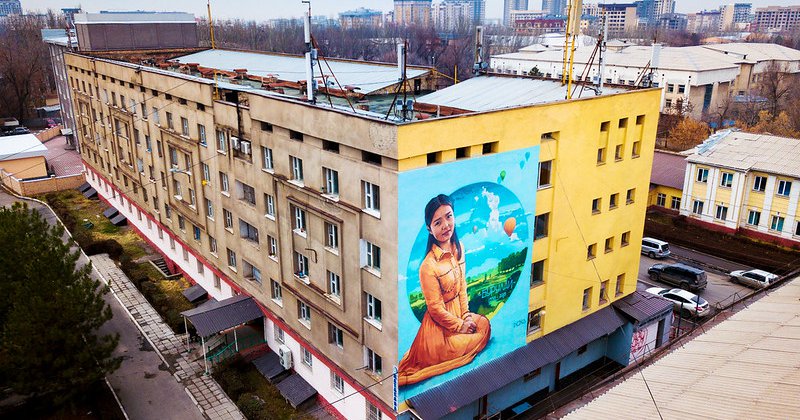
“I was abducted three years ago, when I was 19. I only saw him once before, when I was working in a shop,” Diana tells me.
One summer morning, the young woman climbed into a minibus that should have taken her to work. But Diana, whose name has been changed here for security, didn’t arrive at work that day. When she got off the bus, unknown assailants pushed her into a car and drove her to Talas, a town in the northwest of Kyrgyzstan. She tried to push them off and run away, but her abductors were stronger. They took her mobile phone. One of the men was Adilet (not his real name), a young man who had one day wandered into the shop where Diana worked. And it was he who decided to abduct and marry her.
Adilet’s family and friends didn’t leave her any choice. They forced her to marry this man, who was practically a stranger. They had a Muslim marriage, and the bride’s family were not invited to it.
According to statistics, in Kyrgyzstan one young woman in 17 is abducted against her wishes – a crime popularly known as “ala kachuu” and still seen as an important tradition among some Kyrgyz. The young women, under pressure from their community, often give their unwilling agreement to the arrangement.
In 2018, Kyrgyz Internal Ministry figures showed that over the previous five years there had been 895 reports of abduction known to the police, but 727 cases were dropped and only 168 criminal cases were brought to court – an average of 33 abduction cases a year.
Under Kyrgyzstan’s new criminal code, men who abduct young women in order to marry them face prison sentences of five to ten years.
This, however, did not stop Adilet.
“He would beat me with a strap and choke me, although he knew I was pregnant”
Diana soon started getting used to her new life, but her family – which had been created through the act of abduction – was never a happy one. And the fact that a previously unknown man had stolen her one day wasn’t the worst of it: Adilet soon began to show his real self, turning into a cruel tyrant to his wife.
“He seemed like a good man at first, and we lived fine together, without any rows for a month,” she tells me. “Then I found out that he drank, smoked and hung out with other women, but tried to hide it. After a month, I discovered that I was pregnant. I thought that after we had a child, my husband would change and things would get better. But that didn’t happen. He started beating me. I was in pain and covered in bruises, even on my stomach. He beat me on the parts of the body that wouldn’t be seen. But I couldn’t tell anyone.”
PrintRadio Free | Radio Free (2020-02-20T23:00:00+00:00) Why domestic violence is flourishing in Kyrgyzstan – and how it could stop. Retrieved from https://www.radiofree.org/2020/02/20/why-domestic-violence-is-flourishing-in-kyrgyzstan-and-how-it-could-stop/
Please log in to upload a file.
There are no updates yet.
Click the Upload button above to add an update.